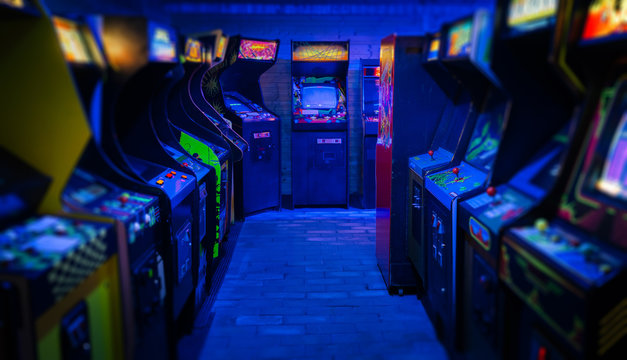After moving it around the agenda multiple times, the Crestwood Board of Aldermen passed an ordinance to amend regulations applicable to mechanical amusement devices, amusement centers and arcades at its May 28 meeting.
Per a memo sent to the board, the ordinance clarifies the distinction between what is currently known as a “coin-operated” machine and a mechanical amusement device for the purposes of business licensing. A “coin-operated” machine is now referred to simply as “a machine,” only including “vending machines for food, drinks, other tangible goods, or services, excluding telephones.” A mechanical amusement device, on the other hand, refers to a device that accepts payment to play a game, or for entertainment, including “vending machines for food, drinks, other tangible goods, or services, excluding telephones.” A mechanical amusement device, on the other hand, refers to a device that accepts payment to play a game, or for entertainment, including things like video game machines and pinball machines.
Under the new ordinance, mechanical amusement devices that offer monetary prizes – including tickets or items redeemable for “cash, check, bank transfer, negotiable instrument, store credit, or gift card” – are prohibited, effectively banning “pre-reveal”/“no-chance gaming machines” in the municipality. Machines licensed by the Missouri Gaming Commission or the Missouri State Lottery Commission, such as Lotto or Powerball machines, are exempt.
The ordinance also mandates an annual $25 city license sticker for every mechanical amusement device, and any business with over five such devices is classified as an “amusement center or arcade.” It also removes place-based zoning-type regulations on the location of amusement centers or arcades, meaning arcades would no longer be conditional uses requiring a CUP process. Instead, they would be more in line with bowling alleys or billiard halls as an indoor recreation use, making them a permitted use in the commercial district.
During public hearings, Ward 1 Alderman Jim Zavist questioned the term “mechanical amusement device” and its applicability to electronic devices.
“My concern is that most devices going forward are going to be electronic and not mechanical – there won’t be any moving parts. Do we get into some legal gray area when we try to enforce it with what kind of devices?” Zavist said.
City attorney Lisa Stump said that they saw the term in other city codes and that the definition is broad enough “that it would cover ‘electronic’ at least as it exists now, at this time.”
Zavist also asked if the bill would make betting using computers illegal if sports betting is legalized. City planner Danny Jendusa clarified it applies only to business establishments, though gambling at places like city hall would be illegal.
The public hearing closed, and Ward 3 Alderman Grant Mabie moved to incorporate the recommendations, which passed unanimously. He then moved it to the consent agenda, which also passed.
Before a final vote on the ordinance, Zavist amended the language to make it more clear what was covered under “mechanical amusement device.” Both Zavist’s amendments and the ordinance itself passed unanimously.



